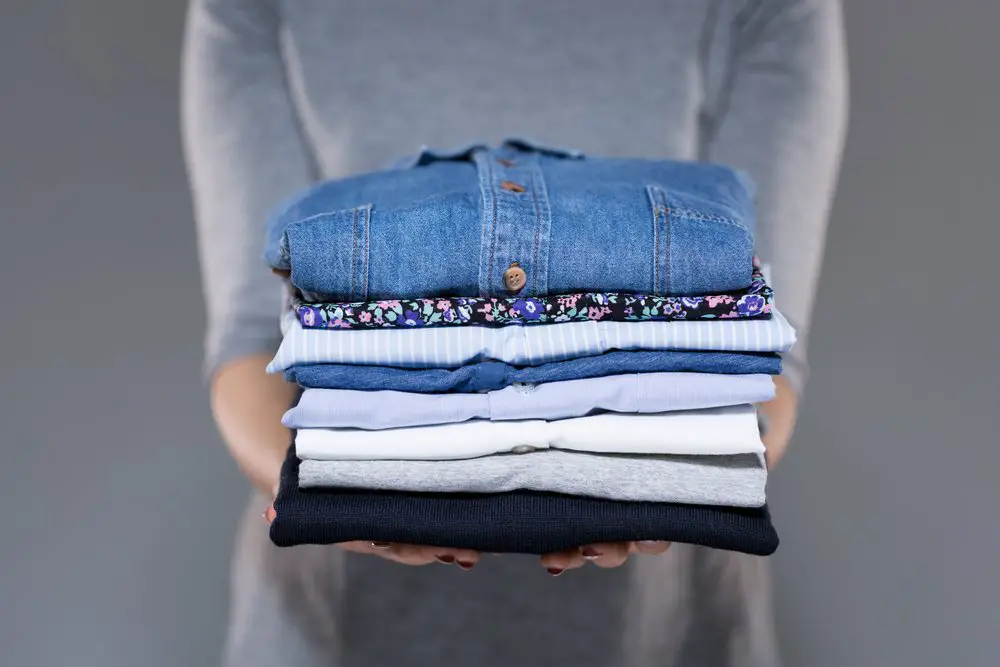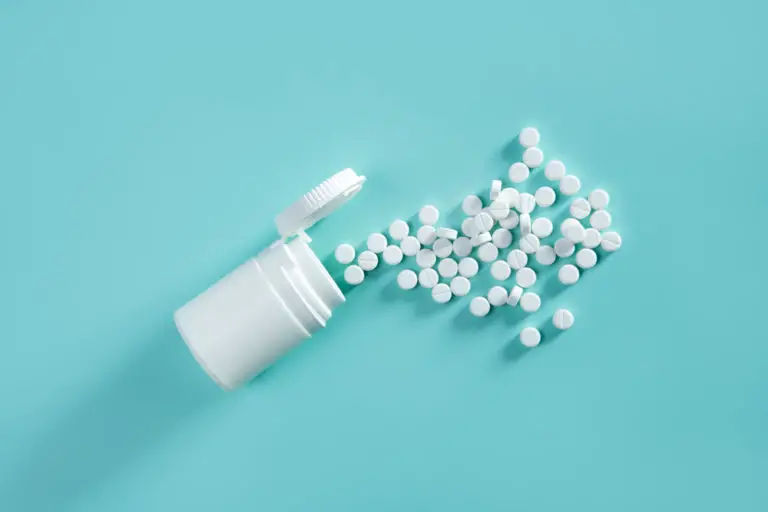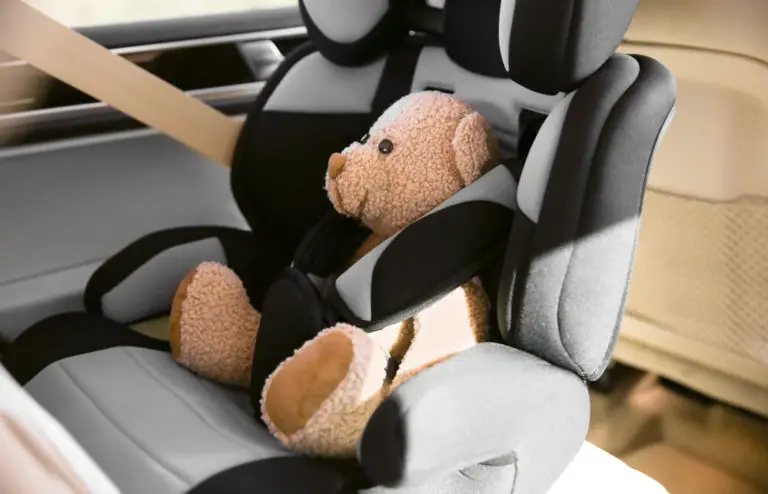15 Practical Laundry Tips That Actually Work (2024)

When you decide to use cloth diapers, you will need to learn a lot about laundry. Cloth diapers have their own set of washing and drying rules. This article is full of laundry tips to ensure your cloth diapers stay fresh and clean and in the best shape possible.
Laundry Tips
1. Learn Your Laundry Symbols
You may not have thought much about laundry science before. If you’re like me, most things just get tossed into the washer with detergent. Cloth diapers, however, have their own set of rules and guidelines. If you’re looking for laundry tips and tricks for cloth diapers, start with learning what the laundry symbols on labels mean.
A great piece of laundry advice is to print off a list of what the symbols mean and keep it posted somewhere in your laundry room. Having a list of symbols handy will help you with washing laundry in general. Your cloth diapers will need to be washed separately from your regular laundry, regardless of what the symbols say. Therefore, if you plan to use cloth diapers, plan to spend a lot of time in the laundry room!
2. Wash Everything Inside Out
One of the laundry basics I’ve been taught was to wash everything inside out. When you wash clothes inside out, it reduces fading and wear and tear. This laundry hack is especially important for items that pill like sweaters and leggings and those that fade like denim.
Washing your clothes inside out also prevents things from snagging, pulling, or getting caught on one another. If you are unsure if an item should be washed inside out, just get in the habit of turning everything inside out.
You don’t have to worry about your clothes not getting clean if they are inside out as the water and the detergent saturate and agitate in the washer. Plus, most dirt is actually on the inside of our clothing from body oils and sweat!
3. Use Less Detergent
You may think you need a lot of soap to get your clothing clean, but in fact, too much detergent can leave behind residue on your clothing, making them stiff. Too many soapy suds in the washer can actually trap dirt in as well. Consider using half the amount of detergent recommended and read the label to see what the proper amount is.
The chemistry of laundry detergent varies from product to product, so it is always best to read the packaging guidelines. Some products are more concentrated than others, so the amount needed may vary. It also depends on how large your laundry load is as well. Obviously, smaller loads need less detergent and larger loads more; that’s probably one of the laundry hacks you already knew!
4. Prefer Cold Water if Possible
Cold water is gentler on clothes than hot water. Using cold water will help prevent bright colors from fading. You should always wash darker colors in cold as hot water can not only make the colors fade, but they can run as well.
Additionally, washing clothes in cold water conserves energy and is more environmentally friendly. Save the hot water for clothing like jeans, and towels, and sheets. You can also use hot water to sanitize laundry by doing laundry on the hottest water setting your machine has. (1)
Some newer washing machines even have a sanitize setting. Sanitizing your laundry is essential after someone in your home has been ill. Regular detergent cleans up dirt, but it is the hot water that kills the bacteria.
5. Maximize Your Loads
While you may think you are saving water and energy by only doing smaller loads, it is actually less efficient. To get clean laundry having a fuller washer in which the clothes can agitate against each is better; it also means fewer loads of laundry and less water and electricity overall.
There are many opinions about the correct way to wash clothes, but washing clothes 101 says don’t overload your washer. Overloading your washing will not give your clothes enough room to move around, and too much weight could damage your machine.
Your washing machine should be about ¾ full. By following the guidelines for your machine and not over or underloading your machine, you will maximize the use of your washing machine.
6. Always Air-dry if possible
Air drying is the best way to dry your clothes. Clothes washing science says that air drying is gentler on clothes and the sun is also a natural sanitizer. I’ve always preferred air drying my clothes because of the fresh scent it gives the clothes. It may take a little bit longer, but it is worth it in the end.
If you are using cloth diapers, you should be air-drying those, so why not get in the habit of doing it for all of your laundry? You don’t need a yard to air dry; although it will help for larger loads, it’s possible to air dry inside, although it may take longer. You can purchase drying racks or lines to hang inside.
7. Unshrink Your Clothes with Baby Shampoo
Some people think that once you’ve shrunk an item, it’s a lost cause, but I’m here to give some more washing clothes tips to help you out. If you accidentally shrink a beloved item in the dryer, soak the shrunken piece of clothes in lukewarm water and add a splash of baby shampoo. This process helps the fibers relax, which will allow you to stretch it back out.
You will need to let it soak for roughly 10-15 minutes. Use a towel to dry the clothing, then lay it out flat. As the piece of clothing continues to dry, it should return to its original size. Do not hang the item as it could stretch it out the wrong way.
You can also use baby conditioner if you don’t have any shampoo on hand.
8. Pick the Right Detergent for Baby Laundry
A baby’s sensitive skin means their clothing needs unique laundry products that don’t contain harsh irritants. If you are a new parent, you may feel like learning about baby laundry takes you back to laundry tips for beginners. There are special laundry detergents made just for babies. But if you don’t want to purchase those, look for detergents that are dye and perfume-free.
If you love your laundry detergent and don’t want to switch, consider doing separate laundry loads for your clothes and your baby’s. You should also avoid using fabric softeners on your baby’s clothing as they also contain dyes and perfume. You should also avoid detergents that have bleach or brighteners.
If you are using cloth diapers, you will also need specialized detergent for them, but don’t wash your baby’s clothing and cloth diapers together.
9. For Cloth Diapers, Use the Rinse-Wash-Rinse Method
Cloth diaper science has figured out the best method for washing cloth diapers, and it goes rinse-wash-rinse.
You can choose to soak or not soak, but the washing machine’s initial cycle should be a cold rinse. After the cold rinse, add cloth diaper safe detergent and wash on hot. Follow the wash cycle with an additional rinse.
After you do the final rinse, perform a sniff test. Your cloth diapers should have a fresh, clean smell. If not, perform an additional rinse. Cloth diaper laundry tricks include using OxiClean occasionally and air drying in the sun, which will naturally sanitize your diapers.
Always check with the manufacturer for any additional tips and tricks on cleaning your brand of cloth diapers. Using certain products could damage your diapers, so it’s best to read up.
10. Know Your Water Hardness
People commonly talk about hard water and soft water, and honestly, for the longest time, I didn’t know what that meant! But when it comes to laundry chemistry, knowing what type of water you have can make a huge difference.
There are water kits you can purchase to test your water at home. While a water test won’t predict perfect laundry, it can certainly help. You may consider using a fabric softener if you have hard water, but you shouldn’t use a fabric softener on your baby’s clothes. You have to be careful what you use as some need extra rinse cycles.
Some detergents had built-in softeners, so read the labels carefully and adjust the amount you use based on your water type.
11. Use Mesh Bags for Socks, Bra, and Underwear
Mesh bags are a great item to have around the house to wash smaller and more delicate items. It also keeps those items from getting stuck together or lost in the wash. Mesh bags are great if you wash your baby clothes with your clothes as it keeps their small delicate items separate.
Mesh bags are also really helpful for washing breast shields as they often get stuck together. A great idea is to keep a mesh bag in your baby’s room so you can toss all the small items in, like socks, then just take the bag and toss it in the wash.
Remember, if you wash your baby’s laundry with yours, you need to use a baby-safe and gentle detergent.
12. Skip Washing Jeans, Keep Them in the Freezer
I have to admit this was a new tip to me! Who knew there were so many laundry secrets out there! There are many people out there who swear that freezing jeans kill the bacteria. The idea is that by freezing the jeans to kill the bacteria, you don’t wash them as frequently and thus prevent fading.
This trend became popular in 2005 when it was mentioned on a blog thread on Superfuture. Even Levi’s CEO Chip Bergh announced in 2014 he hadn’t washed his 501 jeans in an entire year! (2)
Others say that the cod won’t kill bacteria, merely stop it from growing, the way cold temperatures preserves your food and stops it from rotting. You will have to decide on this tip for yourself since I have never tried it, but plenty of people swear by it!
13. Avoid Conditioner When Washing Whites
When you wash your whites, it is best to avoid conditioners. You want to use a special bleach. It is a great idea to wash all your pure whites together as washing them with other colors can make their brilliant color go off.
Some people think detergent and softener interfere with bleach working. It also helps your whites stay bright if you wash on cold. To help get the bleach out, run a second cycle with a fabric softener; just don’t use them together.
If you don’t like bleach, you can use vinegar to brighten your whites. You can use 1 cup of vinegar in your wash and then air dry out in the sun. The sun naturally removes stains, and it will give your clean laundry a fresh scent as well!
14. Prefer a Steamer Over an Iron
With so many modern fabric blends and iron-free choices out there, you may not even own an iron! I know I only iron something a few times a year. Plus, ironing has its own set of rules and science to follow. Instead, grab a steamer; it is gentler on fabric and much easier to use!
Irons can burn clothes, and they can also leak all over. Steamers heat up quickly, and since they never touch the clothing, they can’t burn. Steamers also are sealed, so they are much less likely to leak if they tip over. You also don’t need an additional piece, like an ironing board, to use a steamer, and they can travel with you. Besides, who has space for an ironing board?
15. Always Pre-treat the Stains
It is best practice to pre-treat any stains on your clothing before you wash them. As soon as you get a stain, use a stain treater, detergent, or even hand soap if that’s all you have on hand, so the stain doesn’t have time to settle into the fibers.
Another trick is to soak stained items in cold water. Or if your machine has an “extra white” setting, you can use that. Heat can set stains, so if you’re trying to get a stain out, use cold. If you are out at a restaurant, you can use an ice cube to rub into the stain. The cold from the ice will help prevent the stain from setting in.
FAQ
How do you do laundry like a pro?
Pre-treat stains, wash whites on hot, colors on cold, and use the right amount of detergent for your load size, water type, and washing machine.
What should you not do when doing laundry?
Avoid mixing lights and darks when possible so that the colors don’t fade or run. Avoid detergents with dyes and perfumes, especially when washing your baby’s laundry.
How do you make your clothes smell good?
Air drying your clothes in the sunshine will provide them with a fresh, natural scent. You can mix equal parts vinegar and water in a spray bottle, spray the inside of clothes, and air dry.
Is it better to wash clothes inside out?
Yes! Washing your clothes inside out saves the color of your garments and reduces wear and tear. It also prevents items from snagging on one another.
How often should you strip your laundry?
You should strip your workout clothes every three months and items like towels, sheets, and blankets every 6-9 months. You can use a top load washer or a bathtub.
Can I wash clothes with towels?
Yes, you can; mixing different fabrics and fibers actually helps with the agitation process, which helps get your clothes cleaner. You can also wash towels separately on hot water.

L. Elizabeth Forry
L. Elizabeth Forry is an Early Childhood Educator with fifteen years of classroom teaching experience. She earned a Master of Science in Early Childhood Education from The University of North Dakota and has a Bachelor of Arts in English and one in Music from Lebanon Valley College. She has taught children in Japan, Washington D.C., Chicago, and suburban Maryland. She is trained as a reading therapist, has a TEFL certification, and has done extensive work with children regarding mental health, social-emotional development, and gender development. She has written curriculum for children and educators and has led training sessions for parents and educators on various topics on early childhood development. She is the mother of two boys and resides outside of Annapolis, Maryland.






